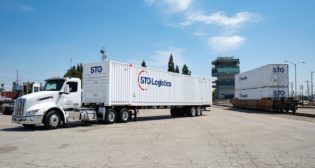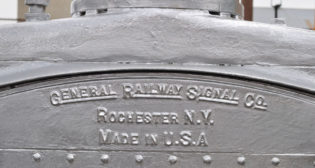
AAR rebuts “shipper abuse” charges
Written by Nebraska Digital, administratorFrom the Association of American Railroads has come a sharp rebuttal to charges that that the railroads are "abusing shippers." It came in response to an editorial that appeared Dec. 22 in the Capital Times of Madison, Wis., under the headline, "Antitrust Rules Needed for Freight Railroads."
In a letter dated Dec. 29, AAR President Edward R. Hamberger cited “significant factual errors and omissions that resulted in a severely skewed editorial.”
“Despite the allegations of Rep. Tommy Baldwin, D-Madison, there is no real evidence backing up claims that the rail industry is abusing shippers,” said Hamberger. “In fact, two recent federal studies indicate the opposite. A study conducted by the Government Accountability Office two years ago noted that between 1985 and 2000 rail rates across the board fell when adjusted for inflation, for all shippers, including captive ones. Further, the study showed that on average, rates fell even when inflation isn’t taken into account. Beginning in 2001, rates began to inch back up, though they are still lower than 1985 levels.”
As a result of that GAO study, Hamberger said, the Surface Transportation Board commissioned a follow-up study “focusing on the captive shipper issue. That national study, completed this fall by Madison-based Christiensen Associates, found no evidence of market abuse and specifically recommended against much of the agendas advocated by Baldwin and others.”
“The Christiensen study found that rail profits are not excessive, pointing out that they are similar to those of utilities,” said Hambeger. “It found that the rate increases that had taken place reflected changes in railroad costs and productivity and did no show abuse inn the market. The study also said that railroad revenues remain tight enough that giving significant rate reductions to one group of shippers would require corresponding increases in rates for other shippers.”
Hamberger also said it is not true that railroads “are exempt from antitrust and transportation statutes that apply to other industries. That is false. Almost all antitrust laws apply to railroads, including those prohibiting price collusion or market allocation.”






